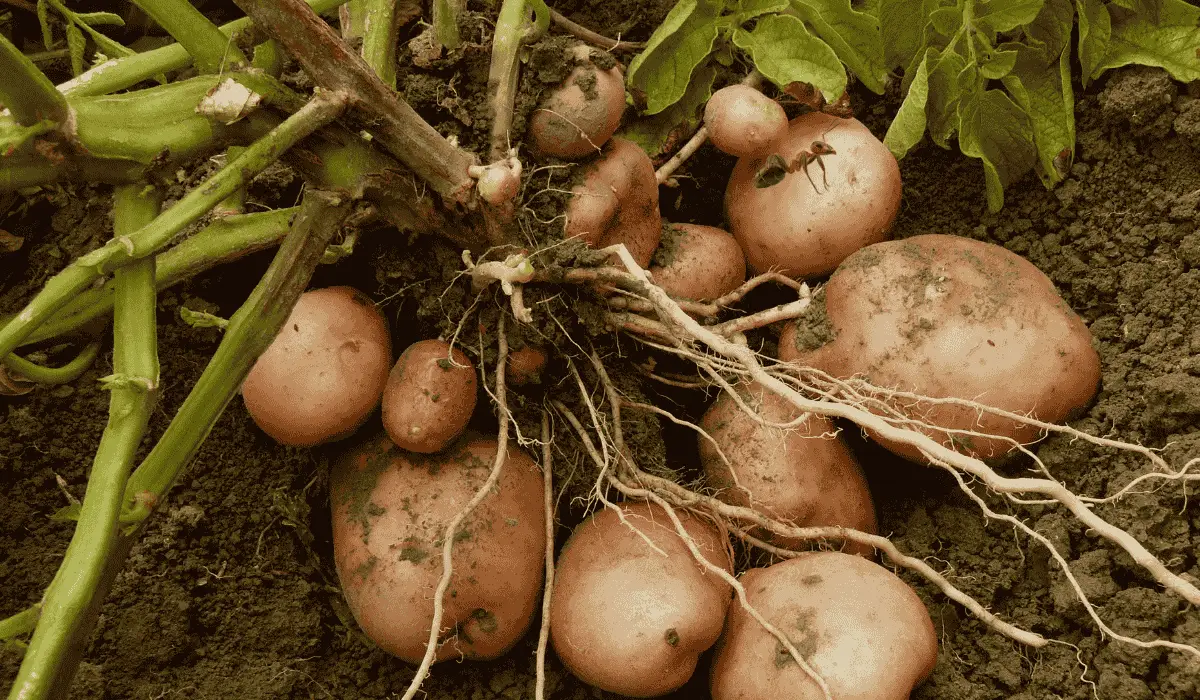If you’ve noticed ants crawling all over your potato plants, you’re not alone! It’s a common issue that many gardeners face. While ants might seem harmless, they can be a sign of something more going on in your garden. Understanding why ants are attracted to your potato plants and how to manage them can help you protect your crops and ensure a healthy harvest.
In this blog post, we’ll dive into the reasons ants are attracted to your potato plants and offer some helpful tips to manage them without harming your plants.
Why Are Ants Attracted to Potato Plants?
Ants aren’t just roaming around for no reason—they’re usually attracted to your potato plants for a few key reasons:
- Honeydew from Aphids
Ants love sugary substances like honeydew, a sticky secretion produced by aphids. Aphids tend to infest potato plants, especially the undersides of leaves. The ants feed on this honeydew and, in turn, protect the aphids from predators to ensure a steady food supply. - Nest Building
Some species of ants might use your potato plants as a shelter or as a place to build their nests. The moist soil around potato plants can be an ideal environment for ant colonies. - Root Damage
Ants sometimes tunnel into the soil around potato plants, which can disturb their roots. While ants usually don’t eat the potatoes themselves, they might damage the root system while digging.
Are Ants Harmful to Potato Plants?
While ants aren’t directly harmful to potato plants, their presence can lead to indirect issues:
- Aphid Infestation
Ants protect aphids, which can weaken your potato plants by sucking out vital nutrients. Aphids can also spread plant diseases. - Soil Disruption
Ants dig into the soil, which may disturb the roots of your potato plants. If they tunnel too much, it could affect the plant’s stability or water absorption. - Fungal Growth
In some cases, the honeydew left behind by aphids can lead to mold or fungal growth on the leaves of the potato plants.
How to Get Rid of Ants on Potato Plants
Here are some easy, natural ways to manage ants and protect your potato plants:
- Remove Aphids
If ants are attracted to aphids, the first step is to get rid of the aphids. You can spray a mix of water and dish soap on the leaves to wash them away. Be sure to do this in the early morning or late afternoon to avoid harming beneficial insects like bees. - Use Ant Deterrents
Ants dislike certain natural substances like cinnamon, cayenne pepper, or vinegar. Sprinkling cinnamon around your plants or spraying vinegar-water solutions near ant trails can help deter them. - Diatomaceous Earth
This natural powder is harmless to humans and pets but deadly to ants. It can be sprinkled around the base of your potato plants to create a barrier that ants won’t want to cross. - Trap Ants with Sticky Traps
Sticky traps can help capture ants without harming your plants. Place them near ant trails to reduce their numbers. - Keep the Garden Clean
Ants are attracted to food sources, so make sure to clear away dead leaves and debris around your plants. This reduces the chance of ants building nests.
Preventing Future Ant Problems
To avoid dealing with ants on your potato plants in the future, try these preventive steps:
- Regularly Inspect Plants
Check your plants for aphids, ants, or other pests regularly. Early detection makes it easier to prevent major infestations. - Encourage Beneficial Insects
Insects like ladybugs and lacewings eat aphids, so encourage their presence in your garden. You can even buy these insects online and release them near your potato plants. - Maintain Healthy Soil
Healthy soil will help your potato plants grow strong, making them less susceptible to pest problems. Add compost and organic matter to improve soil health.
Got Ants on Your Potato Plants?
Don’t let ants ruin your harvest! By understanding why they’re there and taking action, you can protect your plants and enjoy a bountiful crop. Have any tips or experiences with ants in your garden? Feel free to share them in the comments below!



Real great information can be found on weblog.
Deference to article author, some fantastic information .